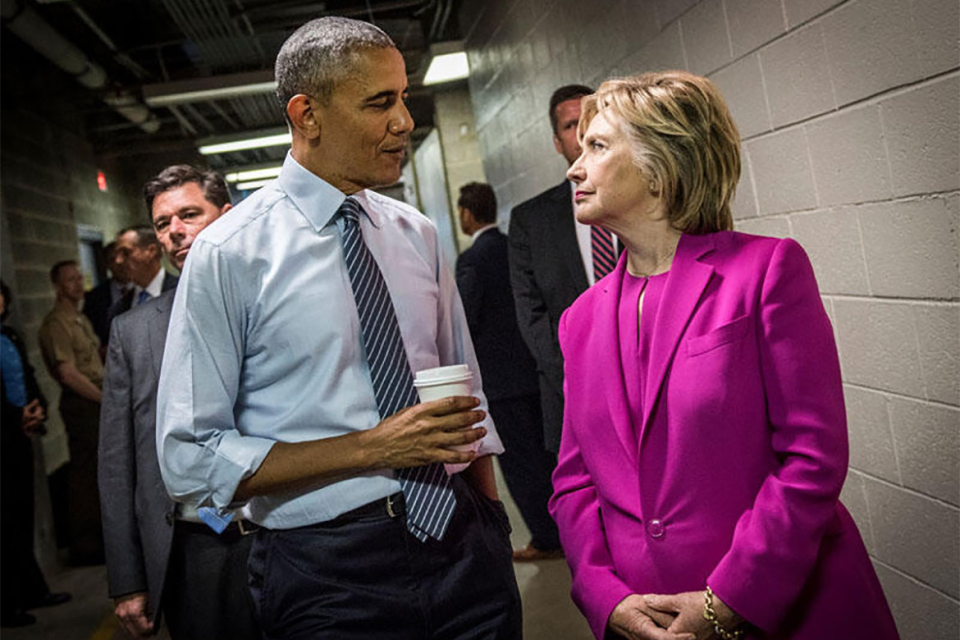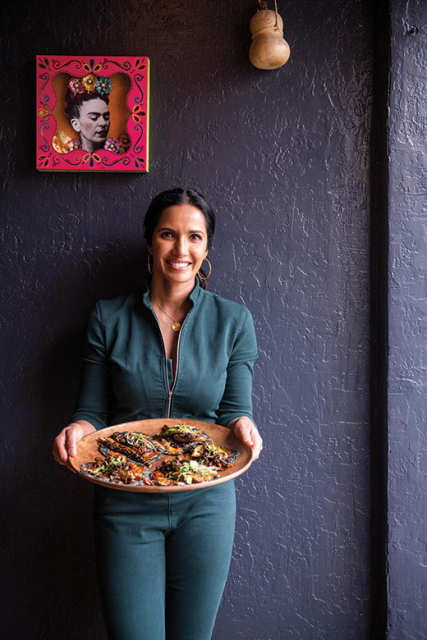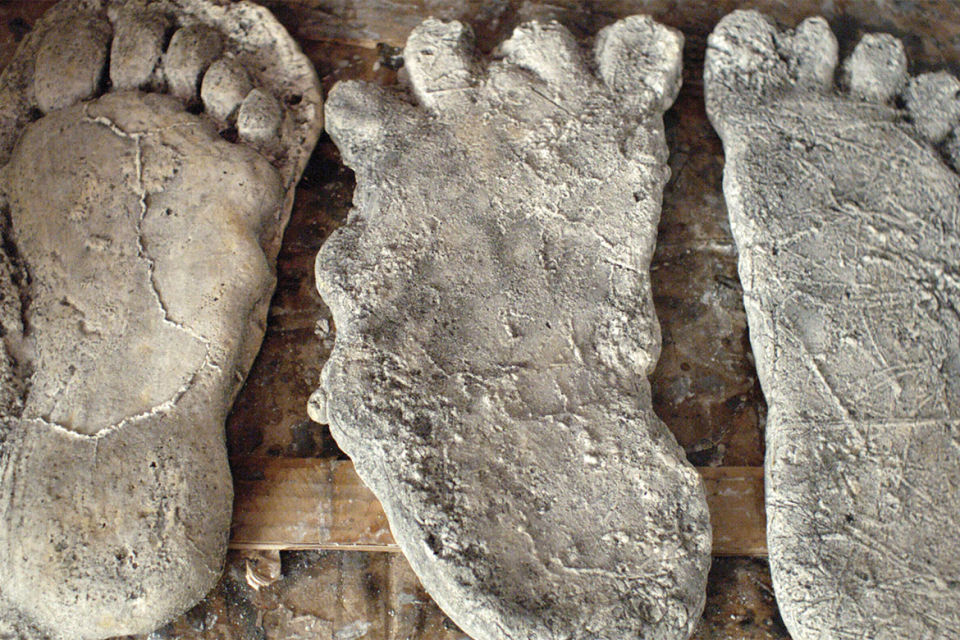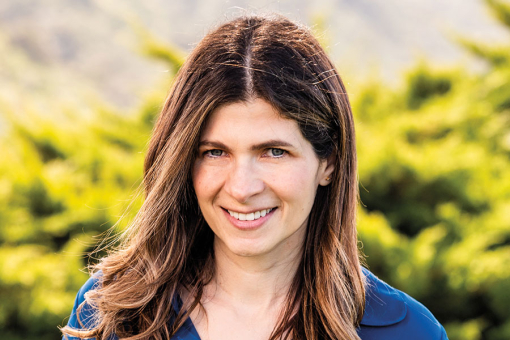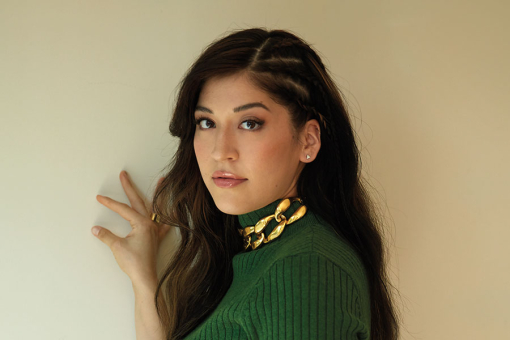A few years ago, Belisa Balaban saw the results of a research project that title-tested the word "documentary" among younger viewers.
The study found that people would say they didn't like documentaries — but when asked to list some of their favorite films, the same folks would rattle off titles of unscripted fare.
"What we've learned since then," she says via Zoom, "is that the association millennial audiences and younger [people] had with a documentary was a very limited understanding of the form. And when exposed to great filmmaking, people discovered that they really love them."
As Hulu's vice-president of original documentaries, Balaban is helping the cause. During her time at the streaming service, Hulu's documentary offerings have included Hillary, Nanette Burstein's Emmy-nominated miniseries about Hillary Clinton, and Fyre Fraud, Jenner Furst and Julia Willoughby Nason's takedown of the spectacular disaster that was the 2017 Fyre Festival.
The latter was a mic drop moment for Hulu, released as a surprise just four days before Netflix's much-touted Fyre:The Greatest Party That Never Happened.
"The goal of a great documentary is to expose you to things that you didn't know, to peel back layers to give you context," says Balaban (who is not related to actor–producer Bob Balaban).
When building her production slate, Balaban looks for films and series that will skew younger, to match Hulu's demographic.
She also wants stories that will "generate conversation" and "leave a mark" because, she says, "We think of our audiences as potential fans who are going to engage around something they're watching. We're hoping that something they've seen is so impactful and exciting that they have to share it."
Part of this also means working with Hulu's sister networks, some of which were added as part of the 2019 Disney-Fox merger.
February's buzzy The New York Times Presents: Framing Britney Spears was a coproduction with FX. "The nonfiction filmmaking community is very small," Balaban notes, "and the nonfiction buying community is even smaller." So it's not uncommon for her to send a project over to National Geographic, ESPN or another network under the Disney umbrella if she thinks it's a better fit for that brand.
But Balaban, who got her start in casting and then helped develop the cult Comedy Central series Upright Citizens Brigade and Strangers with Candy, acknowledges that "having a good sense of humor — an appreciation for the absurd — is definitely central to my taste. Films that take an unpredictable tone or have something unique in their voice — that's always what I'm looking for."
Upcoming programming reflects her eclectic point of view. In June, Hulu will air Changing the Game, a documentary film about high-school athletes who are transgender.
Meanwhile, the network is developing a docuseries about the New York Times' award-winning 1619 Project, which seeks to reframe U.S. history with a focus on slavery and the contributions of Black Americans. And later this year, Hulu will air a three-part docuseries about iconic aughts clothing brand Von Dutch.
How do projects come to Hulu? "Generally speaking, pitches come to us at every stage," she says. "If someone has access to a set of exclusive materials and they show us a little bit of that, or they tell us about it, and they have credibility and we trust that they will be able to deliver, that would be the earliest stage."
She also sees completed films and adds, "We're very flexible in terms of when we come on board projects."
And while Hillary or other programs might suggest a progressive bent, Balaban says, "We respond to amazing talent that we think has something to say. I would like to think that we have something for everyone on Hulu Originals. I don't know if I go into things thinking, 'This is going to be leaning one particular direction or another.'"
(Plus, she points out, the people most upset by the Clinton documentary series were Bernie Sanders supporters, thanks to comments the former Secretary of State makes on camera about her rival for the 2016 Democratic presidential ticket.)
Recent out-of-the-box hits include In & Of Itself, Hulu's filmed version of Derek DelGaudio's cathartic and hard-to-categorize stage show, which incorporates magic and personal stories, both his and some from the audience. It's a difficult production to describe — let alone promote — without ruining the experience, but DelGaudio says, "Hulu ended up being the right choice for us.
"We wanted the team that really valued the work," he continues, "and didn't see it as just another butterfly to put in their collection. We felt like Hulu really got what we were about and what the film was about, and also seemed willing to keep us in the conversation about how to market it, position it. They were all open to that, and that was all led by Belisa."
Like its competitors, Hulu's documentary division is pushing for inclusivity. "Shining a light on people and stories that don't frequently get [seen or] told is the driving goal behind documentaries" in general, Balaban says. "Authorship is critical whenever we're making a decision, and it becomes a question of who gets to tell this story?
"This is of critical importance to us," she goes on. "If someone brings us a story and we have the opportunity to suggest a director or leading contributors, [we will]. We expect to see a diverse list. We expect to see a good fit between subject and author. We expect to see representation.... I feel like there's great alignment among the filmmaking community that this is an essential shift."
The network found success with Taste the Nation with Padma Lakshmi, a travel and food series that explores cuisines and conversations among immigrant populations in various U.S. cities. Lakshmi — longtime host and executive producer of Bravo's Top Chef — had shopped the series, her passion project, for a while before it found a home on Hulu.
That worked out well for all concerned. "They were specifically looking for food content," Lakshmi recalls, "but they were also looking to do food programming a little bit differently than other networks or streamers." The critically regarded series premiered in June 2020 and has a second-season renewal.
"What I found most refreshing about Belisa and her whole team," Lakshmi says, "was the way they listened to me as the creator when I felt strongly about something. This felt truly collaborative — we all knew we were rowing in the same direction. They weren't afraid of doing something new or pushing the envelope.
"I think it was really brave of them to support me in doing a show that was both serious and fun but didn't shy away from difficult topics. The trust they put in me was liberating and encouraging. It gave me the wings to fly."
She describes the notes process between her team and the network as "multilayered.... They gave us input prior to shooting about which cities and communities they felt would be more compelling than others, as well as notes on the particular stories and also during the editing process."
Hulu's documentary projects for 2021 also include director Jed Rothstein's WeWork: Or the Making and Breaking of a $47 Billion Unicorn and Sasquatch, director Joshua Rofé's three-part series about a few gruesome murders that were blamed on the infamous mythical creature.
The latter, which is executive-produced by Mark and Jay Duplass (Wild Wild Country) , is a sensational tale about an investigative journalist who follows up on an old story, only to discover something more terrifying.
Don't compare it to Tiger King, Balaban says; Hulu ordered Sasquatch long before the release of Netflix's 2020 smash. "Not to be a spoiler, but there's no one keeping a Sasquatch in a zoo of Sasquatches," she says, laughing.
Neither of these Hulu programs is "true crime" in the same sense as cable documentaries that focus on exonerating the wrongly convicted or reopening cold cases.
"A range of true crime has a place on Hulu," Balaban says, noting that she likes the term "true con," which she heard after Fyre Fraud aired. She hopes WeWork will be "an insight into the unicorn economy and give audiences context that they didn't know they needed for a really important culture and finance story." On the other hand, she says, Sasquatch plays into "very, very dark" humor, even though it's "about very serious things."
Hulu also has a partnership with the Kardashian dynasty, which Balaban says is "super exciting" but premature to discuss in detail.
Despite her success and experience in this arena, Balaban is hard pressed to expound on the differences between the terms "reality TV," "unscripted" and "docuseries."
"Docuseries is, for me, a bit of a troublesome term because it can mean so many different things," she says. "Reality would be something truly constructed, formatted, structured."
But, she adds, "The idea that anything is captured with a camera without impacting or changing it in some way? I think that's false. I think we always change things in some way."
This article originally appeared in emmy magazine, Issue No. 5, 2021


